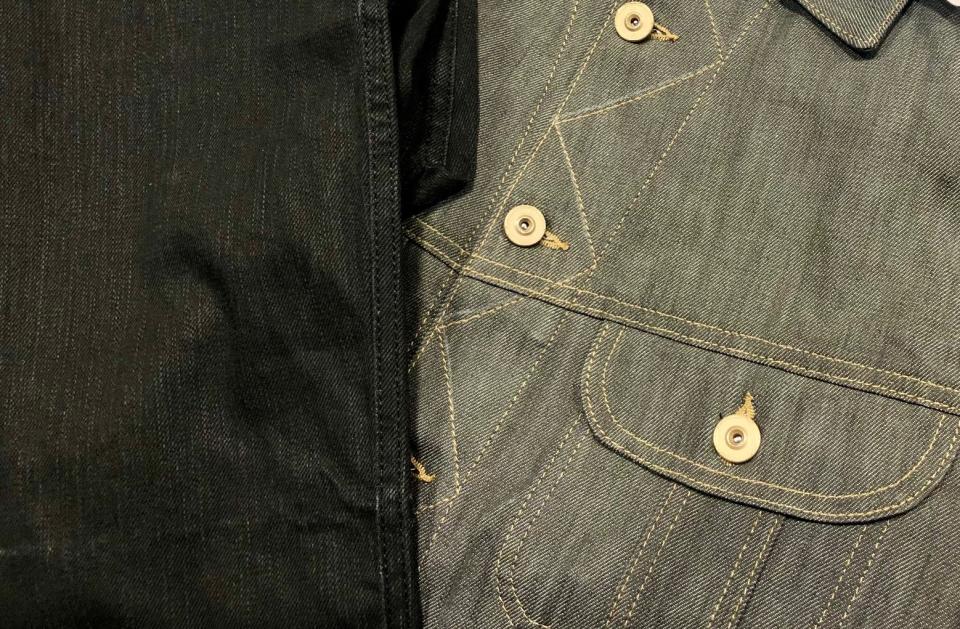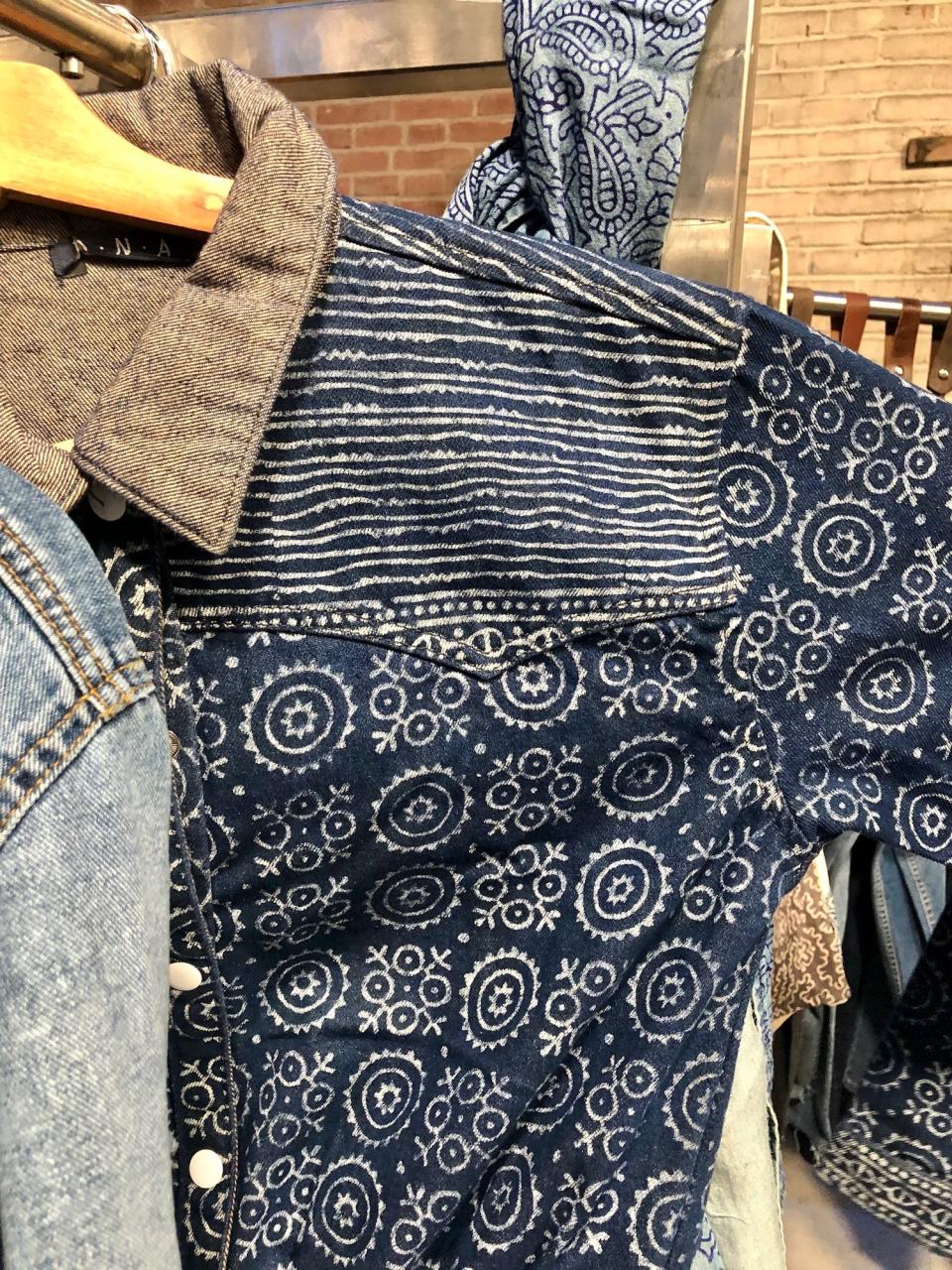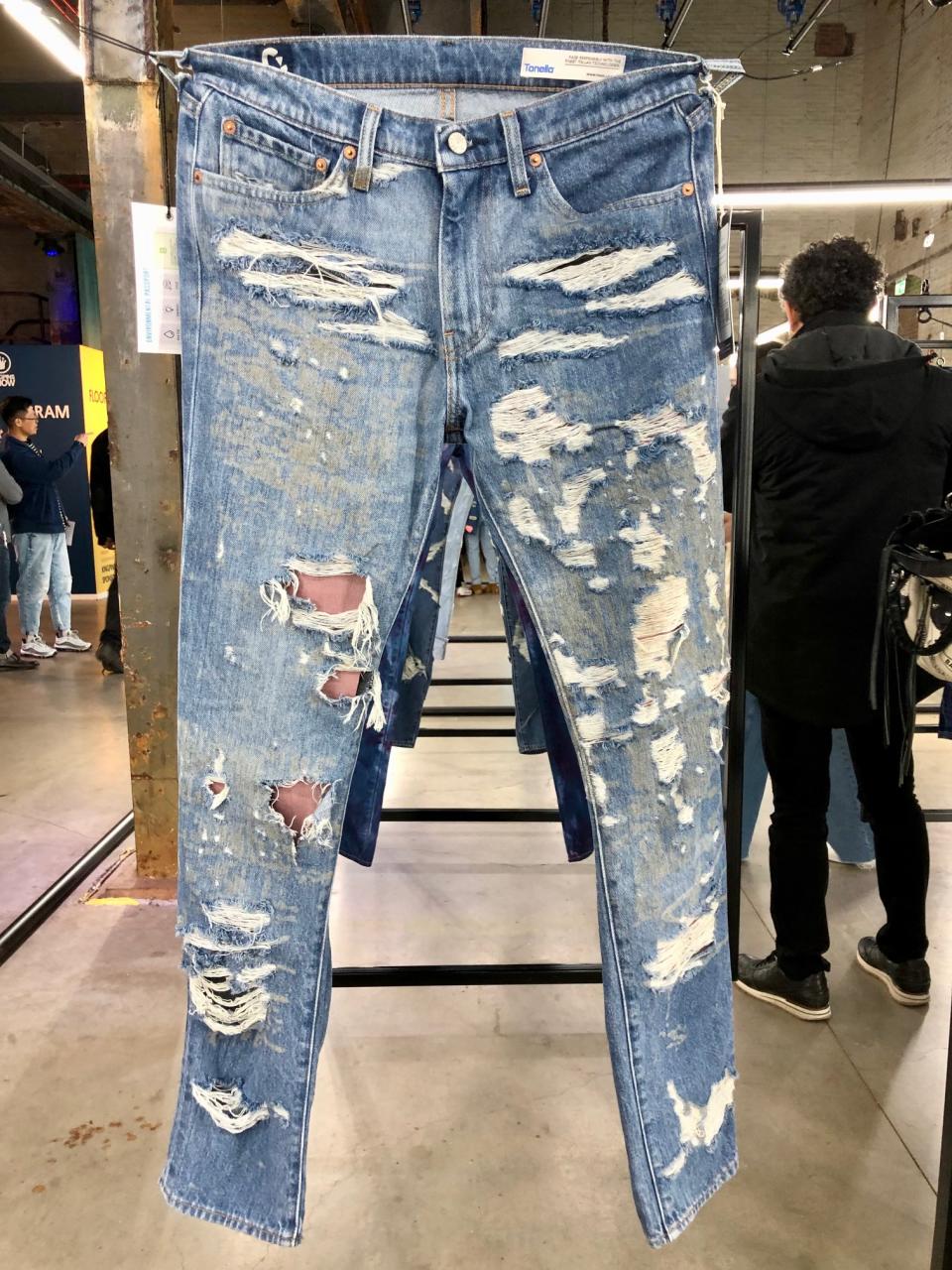Color and Creativity Take Center Stage at Kingpins Amsterdam

While technology providers like Tonello and Jeanologia introduced more efficient solutions to traditional washing and dyeing, and mills continue to prioritize sustainable inputs, denim’s impact on the environment didn’t lead conversations at Kingpins Amsterdam last week the way that it has in seasons past.
Eye-catching colors took center stage instead.
Kingpins Show founder Andrew Olah’s recent letter to the industry underscored the importance of creating visually exciting garments. “[B]eauty has been taking a backseat to sustainability,” he wrote, urging companies to “highlight the new and beautiful products as well as the most sustainable ones.”
Denim’s indigo heritage is the main creative driver for many mills this season. Mark Ix, Advance Denim’s director for North American marketing, noted a stronger focus on “true denim” and vintage looks. He described how the industry is going back to the “craft of dyes” by updating old machinery with safer dyestuff to achieve unique colors with character.
The Morrison dye range, created with Japanese dye experts, was a centerpiece of Advance Denim’s collection. A highlight is the Royal V8, a deep and dark pure indigo with a clean wash down that does not flare red.
Turkish mill Orta, which curated product highlights from the past 70 years in an exhibition-like space, presented new colors that meet the demand for black and gray denims.

BioBlack TX by Nature Coating is a 100 percent bio-based black pigment alternative to petroleum-based carbon black. The dyestuff is made with pre-consumer industrial wood waste from FSC-certified sources from the lumber, paper, furniture and flooring industries. Orta also added gray to its family of coatings and dyes made for a net-zero future.
Turkish mill Bossa continues to experiment with colored cotton, which it introduced last season. This time, it added brown-hued cotton to the weft of garments.
SM Denim offered fabrics hand-dyed with natural indigo by people affected by the 2022 monsoons in Pakistan. The capsule collection is a way for the Pakistani mill to provide a source of income to communities that are still recovering from the catastrophic flooding that destroyed nearly half of the country’s cotton production.

Cone Denim offers a fresh alternative to basic black with Black Cherry, a black denim with a Bordeaux cast that becomes more pronounced as it’s washed. The mill is also seeing interest in striped fabrics modeled after a fabric from the 1950s.
Vertical denim manufacturer Artistic Milliners and Los Angeles-based laundry SFI combined their expertise to showcase five new wash innovations that reduce or eliminate the use of harmful chemicals, water and energy. The processes are engineered to be used on their own or in combination to create an array of finishes, including recreating classic stone washes without pumice, PP or bleach.
Flash Fade, a pumice alternative, is a water-free abrasion booster that saves time, water and energy while lightening, abrading and enhancing denim highs and lows. Brilliant Fade is an ozone booster that can create authentic vintage washes without potassium permanganate and uses a GOTS- and OEKO-TEX-certified and ZDHC level 3-compliant chemical to reduce the impact on the environment and workers.
By using a foam machine to finish garments, HydroSave with Foam reduces water consumption up to 81 percent. HydroCool Dyes, a pre-cationization product that is ZDHC level 3 and Bluesign certified, saves water and energy and eliminates salt. The dye process uses room-temperature water resulting in significant energy savings.
Next Gen Dyes use a patented process that extracts pigment powder from recycled garments and manufacturing waste. The 100 percent recycled pigment dyes can be used on cotton, wool, nylon or any natural fiber blend enabling brands to create custom colors.
Though vintage and worn-in effects are driving sales, demand for denim with long-lasting color is picking up. Solutions creating clean and rich color, like Lenzing’s Indigo Technology which incorporates indigo pigment into Tencel Modal fibers, are especially important for dressier denim styles targeted to consumers wearing jeans or denim suiting to work.
Naveena Denim Mills expanded its Solido collection of fabrics with strong color fastness. The fabrics maintain their color even after 20-plus home laundering. The range spans black, dark indigo and navy colors. Naveena also added new smokey indigo and dark indigo colors as well as new natural colors with an earthy look.
Saitex showed Stay Black, a range of fabrics with reactive dyes that don’t wash down. The B Corp. mill also presented fabrics that are gray, black or indigo overdyed with black, blue-casted black and black-casted blue that achieve wash-down effects with dimension.
Overdyes were a large part of US Group’s collection. The line included olive on blue, navy on blue, gray on blue and gray on gray. The mill also added dimension and character to colors that are usually visually flat, like tan, brown and green. Black denim that achieves nice highs and lows and winter blues—like smokey blue and indigo with a green cast—round out the collection.
Show initiatives
Kingpins Show highlighted exhibitors’ most sustainable products in the MSP Collection, an inspirational collection made entirely of sustainable fabrics, trims and chemicals available at the show. Designed by Piero Turk and Serena Conti, the garments were manufactured by Denim House and processed by Tonello’s R&D center with responsible finishing technologies. Garments spanned trench coats and cargo jeans to short-sleeve blazers.
Kingpins gave a special shoutout to the chemical companies—Blueconnection, Dystar/Kaiser, Garmon-Kemin Group, Lab102-Blue Veins of CHT, Officina39, Rudolf Hub 1922 and Soko—for being integral partners in the initiative but “often in an invisible way.”
Tonello was also one of the key partners behind One Denim, a collaboration with Crescent Bahuman Limited to show how brands can control their inventory. The 10-piece conceptual collection showcased the variety of finishes and washes a single 100 percent cotton fabric can achieve.

Artistic Milliners and SFI teamed with Denim Dudes on a Y2K-inspired garment collection. It included many of the F/W 24-25 trends Amy Leverton, Denim Dudes founder, described in her Kingpins trend presentation, including parachute pants, studded shirting and oversized jackets. Additionally, Leverton wore one of the relaxed coordinating sets on the show’s first day.
Turkish mill Kipas Denim and BY.WUZZY, a U.K.-based reworked denim brand, teamed up in an effort to help those affected by the February earthquakes in Turkey. The duo created and sold denim bags and roses with all proceeds going to earthquake survivors.
Material Exchange launched Deadstock Depot, a new digital platform designed to link denim deadstock from around the world with manufacturers who will bring it back into circulation.
The goal is to make Deadstock Depot the single global destination for excess inventory. The platform will showcase products and give relevant data such as weight and fiber content, in addition to information about the point of origin. That includes the mill’s carbon footprint, position on sustainability, how it treats its employees, and even if it provides good childcare for workers. Cost per yard of fabric will also be included.
The trade show was also an opportunity to unveil Transformers Foundation’s Transparency Tool (TTT). The web-based tool calculates impact based on data submitted by the supply chain. It also provides product mapping as raw materials and products move from one place to the next. A transport module calculates CO2 emissions or CO2-equivalent emissions to reflect transportation’s impact.

